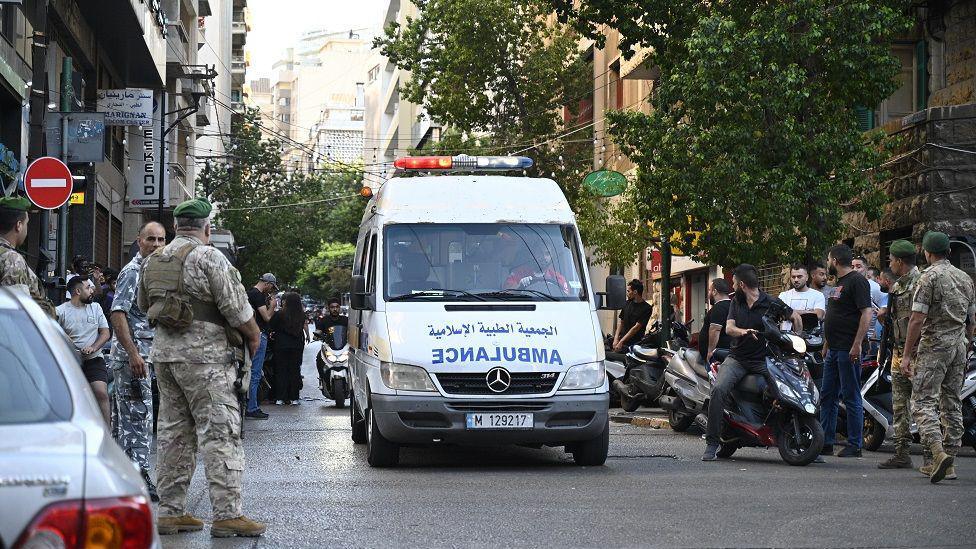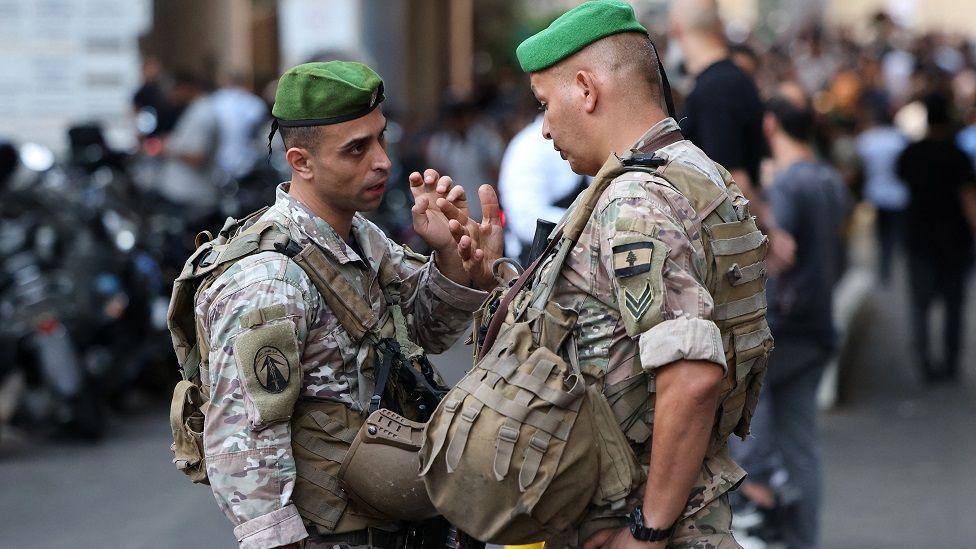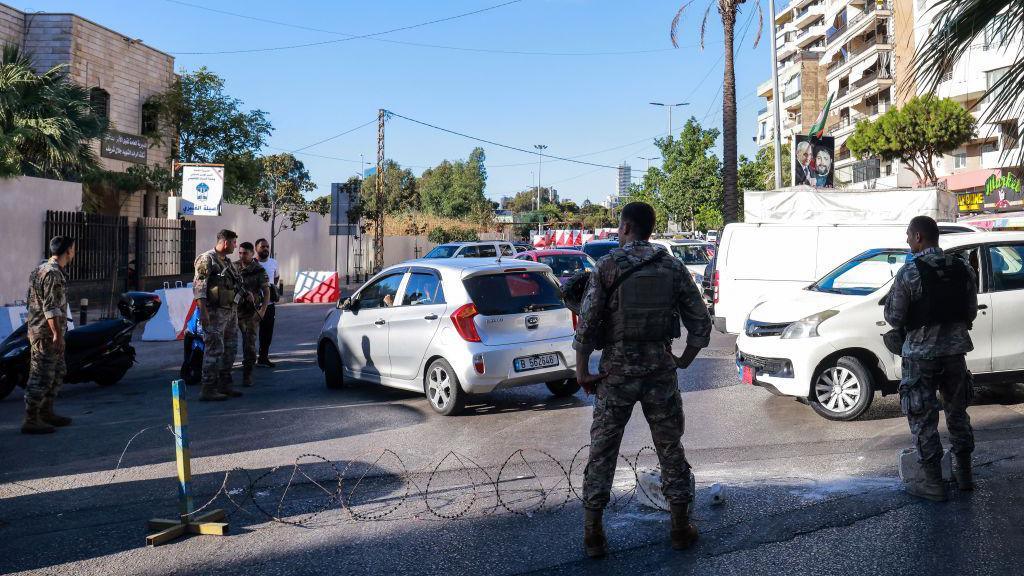Pager explosions will devastate Hezbollah's morale and manpower

- Published
It is hard to think of an attack more calculated to sow fear and confusion.
Hezbollah relies heavily on pagers for the group’s communications.
Mobile phones have long since been abandoned as simply too vulnerable - as Israel’s assassination of a Hamas bombmaker demonstrated as long ago as 1996.
But today’s attacks were terrifying in their scope.
Hezbollah members were blown up in supermarkets, on the street, in their cars, at home, next to their children.
Incidents were reported from all across Lebanon, from Beirut to the Bekaa Valley. Even from neighbouring Syria.
Iranian state TV confirmed that Tehran’s ambassador in Lebanon was among those injured.
Each explosion may have been small, but some resulted in catastrophic injuries.
One particularly graphic image showed a lifeless young man slumped in a barber’s chair, his face bloodied.
Video appears to show pager exploding in a supermarket
At a time when Hezbollah and Israel have been locked in a low-level war for almost a year, these attacks will have devastating consequences for Hezbollah’s manpower, communications and morale.
Israel has yet to comment, but this was undoubtedly its work - no other group or country has the motivation or capacity to do something like this.
It is the latest in a series of sophisticated military and undercover operations that have included, since mid-July, a long-range air raid in Yemen, as well as assassinations in Beirut and Tehran.
Do the pager attacks herald a larger Israeli operation?
With large numbers of Hezbollah's personnel now injured and its vital communication network massively - and embarrassingly - disrupted, this would clearly be a tempting moment for Israel to take advantage.
Israeli leaders have been signalling, in recent days, their desire to alter the military status quo along the Lebanese border.
On Sunday, Israel’s Prime Minister, Benjamin Netanyahu, said Israel needed “a change in the balance of power on our northern border".
Tens of thousands of Israeli citizens have spent most of a year away from their homes. Israel ordered an evacuation of vulnerable northern communities when Hezbollah started firing rockets into northern Israel, soon after the Gaza war began.
Months of retaliatory Israeli air strikes have also forced huge numbers of Lebanese civilians to abandon their homes.
On Monday, Mr Netanyahu and his defence minister, Yoav Gallant, both warned a visiting US official that Israel was prepared to do whatever it took to ensure its security.
For the first time, the government also said its Gaza war aims included allowing Israelis to return to their homes, raising the spectre of a wider conflict, possibly involving a limited ground invasion to create a buffer zone in southern Lebanon.
There are no signs yet of the sort of build up of men and armour that would be needed for a major military incursion, but today’s attacks represent yet another dangerous escalation.
It is hard to see how Hezbollah won’t feel compelled to respond in some way.
Related topics
- Published20 September 2024

- Published18 September 2024

- Published14 February
